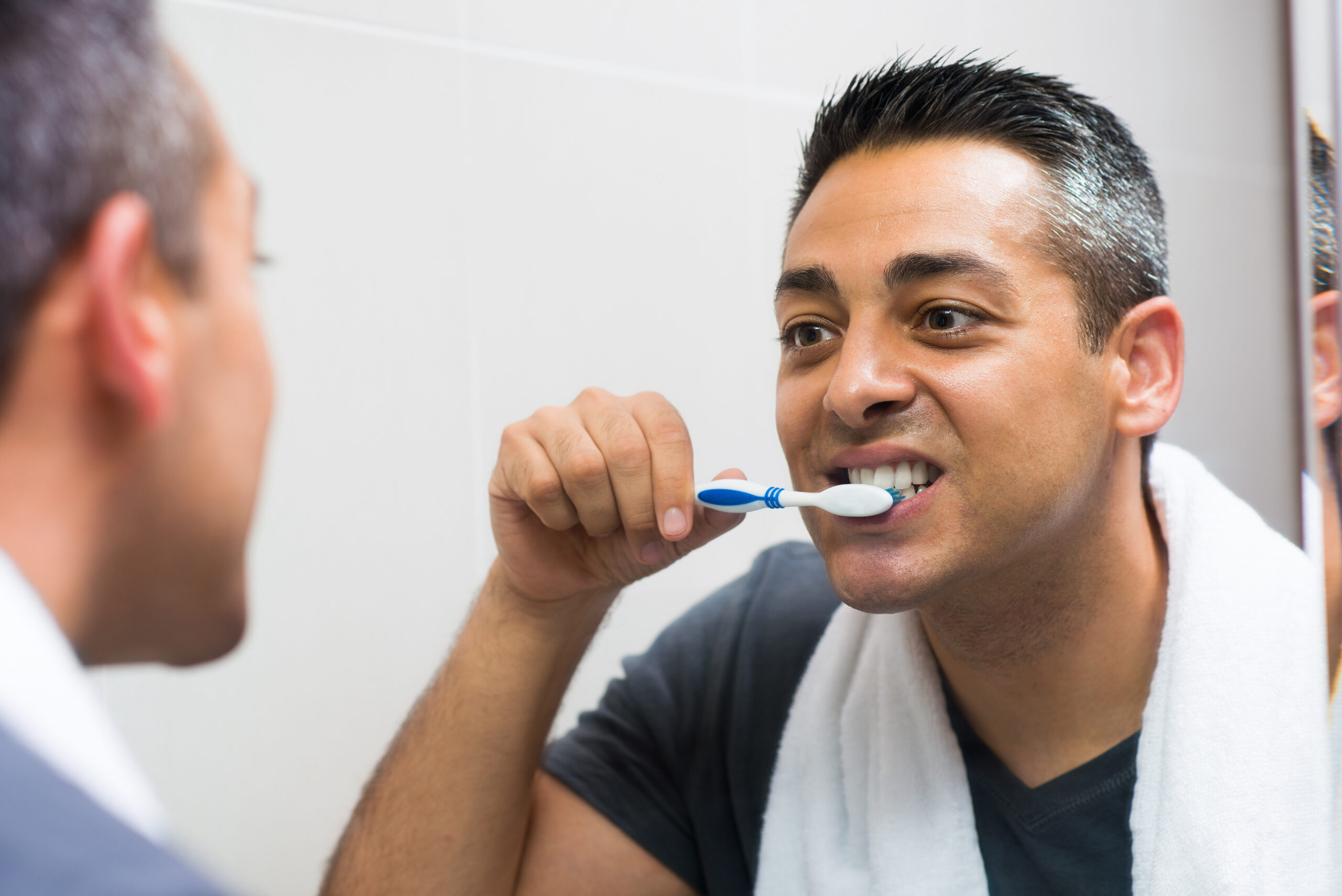
Risk Factors of Periodontal Disease
Periodontitis, (also called gum disease) is an inflammation or infection of the gums caused by an accumulation of bacteria, typically due to poor hygiene habits. There are different stages of periodontitis that start with mild inflammation and progress to a more serious infection that can ultimately lead to tooth loss. Some people are at a higher risk for developing periodontal disease than others. However, proper oral health habits can help minimize these risks.
Plaque Buildup
The most common cause of periodontitis is plaque buildup. Plaque refers to a thick film of bacteria that develops on the teeth and gums. Daily brushing and flossing are highly effective at removing plaque buildup. However, if you do not brush and floss regularly, plaque can turn into tartar which cannot be easily removed at home with basic hygiene.
Tobacco
Smoking and the use of chewing tobacco can also contribute to periodontal disease. Smoking interferes with normal gum tissue cell function, making the mouth more susceptible to conditions like gum disease. The longer that a person engages in these types of habits, the higher the risk for periodontal disease.
Hormone Fluctuations
Fluctuations in hormones can also contribute to gum inflammation and infections, especially in females. When you are experiencing your monthly menstrual cycle or are pregnant, your hormones rise and fall. These hormonal shifts can make you more susceptible to gum disease. It is not uncommon for pregnant women to experience irritated, inflamed, puffy, or bleeding gums when brushing during pregnancy.
Nutritional Deficiencies
If you do not receive adequate nutrition, you are at a higher risk for developing periodontal disease. It can be challenging to take in all of your daily vitamins. However, inadequate amounts of certain nutrients, such as vitamin C, can be harmful to your gum health. It is important to maintain a balanced diet rich in vitamin C and other essential nutrients. If you have difficulty getting enough nutrients, speak with your doctor about taking a daily multivitamin or supplement.
Prescription Medications
Many medications have adverse side effects, including those that impact your oral health. You may notice that some of your medicines cause you to have reduced saliva production which can leave you with chronic dry mouth. When your mouth is dry, it encourages bacteria to more easily multiply and spread. If you are concerned about dry mouth and its effect on your oral health, speak with your doctor about possibly switching medications.
Crowded or Crooked Teeth
Having crowded or crooked teeth can increase a person’s risk of developing periodontal disease. This is because a crowded mouth can make it more difficult to thoroughly clean your teeth, allowing bacteria to build in small nooks and crannies. Misalignments create spaces where plaque can hide and ultimately harm your teeth and gums. If you have crowded or crooked teeth, it is important to take extra precautions and brush and floss well to keep oral health problems like gum disease at bay.
Family History and Genetics
Some families are more prone to oral health problems than others. Genetics play a major role in how strong your teeth are, as well as how vulnerable they are to tooth decay and periodontal disease. Speak with your Melbourne, FL dentist if you are aware of oral health problems that run in your family.
Certain Medical Conditions
Some medical conditions can increase a person’s risk of developing periodontal disease. People living with diabetes have a higher incidence of gum disease compared to other people in the same age group. Periodontal disease is also more common in people with AIDS. Additionally, studies have shown that certain cancers and cancer treatments can increase the risk of gum disease.
Contact Your Melbourne, Florida Dentist! We can Help with Periodontitis!
Periodontitis is a serious condition that can cause permanent damage to the soft tissues and bones that support the teeth. Without treatment, the alveolar bone is gradually lost, resulting in symptoms like receding gums, pain, halitosis, swelling, bleeding when brushing or flossing, and loose teeth.

